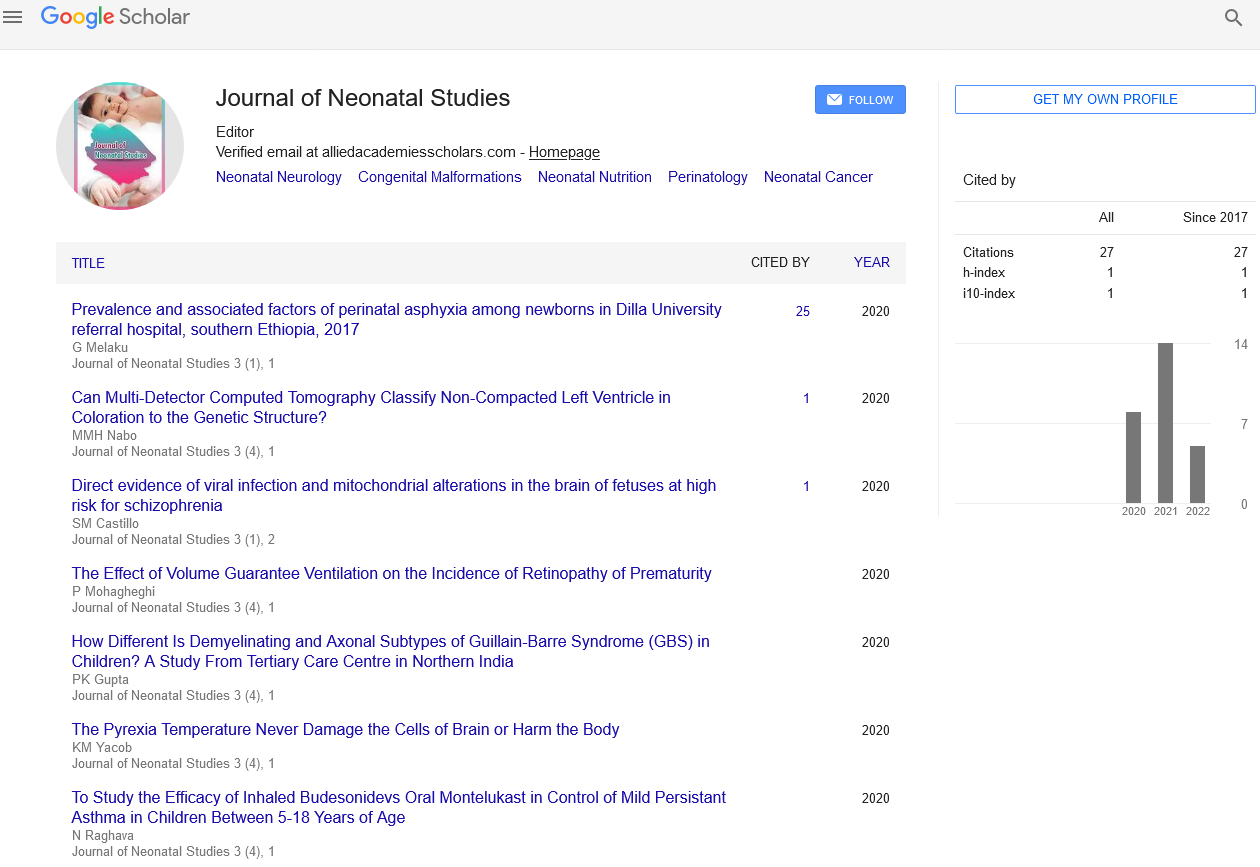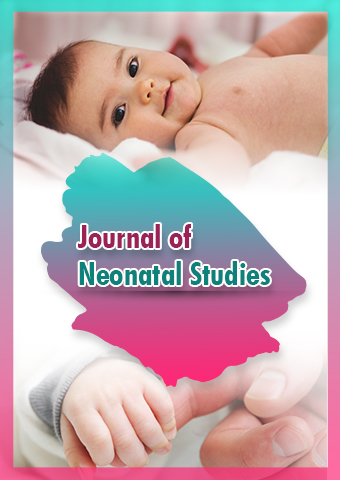Perspective - Journal of Neonatal Studies (2023) Volume 6, Issue 5
Neonatal Cancer: Understanding a Rare but Critical Challenge
- Corresponding Author:
- Jia Fan
Department of Neonatal, Nanyang Technological University, Singapore
E-mail: jiafan23@edu.sg
Received: 12-Sep-2023, Manuscript No. JNS-23-118954; Editor assigned: 14-Sep-2023, PreQC No. JNS-23-118954 (PQ); Reviewed: 29-Sep-2023, QC No. JNS-23-118954; Revised: 06-Oct-2023, Manuscript No. JNS-23-118954 (R); Published: 16-Oct- 2023, DOI: 10.37532/JNS.2023.6(5).132-133
Introduction
Neonatal cancer is rare and comprises a heterogeneous group of neoplasms with substantial histological diversity. Almost all types of paediatric cancer can occur in fetuses and neonates; however, the presentation and behaviour of neonatal tumours often differs from that in older children, leading to differences in diagnosis and management. The causes of neonatal cancer are unclear, but genetic factors probably have a key role. Other congenital abnormalities are frequently present. Teratoma and neuroblastoma are the most common histological types of neonatal cancer, with soft-tissue sarcoma, leukaemia, renal tumours, and brain tumours also among the more frequent types. Prenatal detection, most often on routine ultrasound or in the context of a known predisposition syndrome, is becoming more common. Treatment options pose challenges because of the particular vulnerability of the population. Neonatal cancer raises diagnostic, therapeutic, and ethical issues, and management requires a multidisciplinary approach. While neonatal cancer accounts for just 2-3% of pediatric cancers, its impact is profound, demanding comprehensive understanding and innovative solutions.
Description
Types of neonatal cancer
Neonatal cancers are predominantly embryonal in origin, and a few key types include neuroblastoma, Wilms tumor, retinoblastoma, and leukemia. These malignancies often present with vague symptoms such as abdominal distension, pallor, or feeding difficulties, making early detection a formidable task.
Diagnosis and challenges: Diagnosing neonatal cancer is complex due to the inherent physiological differences in neonates. Symptoms may overlap with common neonatal issues, necessitating a high index of suspicion. Further complicating diagnosis is the fact that standard imaging, like radiation-based techniques, cannot be used in these fragile patients.
Treatment modalities: Treatment strategies are individualized, considering the type, stage, and overall health of the neonate. Surgery, chemotherapy, and radiation therapy are standard options. However, neonates may be too small or too sick to tolerate these conventional therapies. Thus, clinicians must balance the risks and benefits of treatment, sometimes opting for conservative management when aggressive therapy is unfeasible.
Supportive care: Neonatal cancer treatment requires a multidisciplinary approach. Neonatologists, pediatric oncologists, surgeons, and palliative care teams collaborate closely. Ensuring neonates receive adequate nutrition, pain management, and psychosocial support is essential. Families also require extensive support to navigate the emotional turmoil of having a child diagnosed with cancer.
Prognosis and outcomes: Prognosis for neonatal cancer is generally poorer compared to pediatric cancers in older children. Survival rates vary depending on the specific cancer type and stage. Early diagnosis and timely intervention are critical in improving outcomes. Advances in treatment, such as targeted therapies and stem cell transplants, hold promise, but their use in neonates is limited by safety concerns.
Challenges in research: Research into neonatal cancer is hampered by its rarity and the ethical concerns surrounding clinical trials in such a vulnerable population. Yet, understanding the molecular and genetic basis of neonatal cancers is vital for developing more effective and less toxic treatments. Collaborative efforts across institutions are essential to advance the field.
Psychosocial impact: A neonatal cancer diagnosis deeply affects parents, siblings, and extended family. Coping with the emotional distress while managing the practical aspects of care can be overwhelming. Support groups and counseling play a crucial role in helping families navigate this challenging journey.
Prevention and awareness: Preventing neonatal cancer is challenging due to its rarity and unknown causes. However, raising awareness about neonatal cancer and its symptoms can lead to early detection and better outcomes. Parents and healthcare providers must be vigilant and consider cancer as a possible diagnosis in neonates with unexplained symptoms.
Future directions: As medical science continues to advance, neonatal cancer care will benefit from precision medicine, where treatments are tailored to the genetic makeup of the tumor. Additionally, innovative diagnostic techniques, such as liquid biopsies, may provide less invasive ways to monitor disease progression and treatment efficacy.
Prognosis: Neonatal cancer prognosis varies depending on the type and stage of the cancer, as well as the overall health of the infant. Survival rates have improved over the years due to advances in treatment, but neonatal cancer remains a life-altering diagnosis.
Support organizations: Several organizations worldwide are dedicated to supporting families dealing with neonatal cancer. They provide information, emotional support, and resources to help families navigate the challenges that come with a neonatal cancer diagnosis.
Conclusion
Neonatal cancer is a rare and devastating condition that poses unique challenges in diagnosis and treatment. While research into neonatal cancer is limited due to its rarity, advancements in understanding the genetic and molecular basis of these tumors offer hope for more targeted and less toxic therapies in the future. With the dedication of healthcare providers, researchers, and support organizations, progress can be made in improving the prognosis and quality of life for infants and families affected by neonatal cancer.

